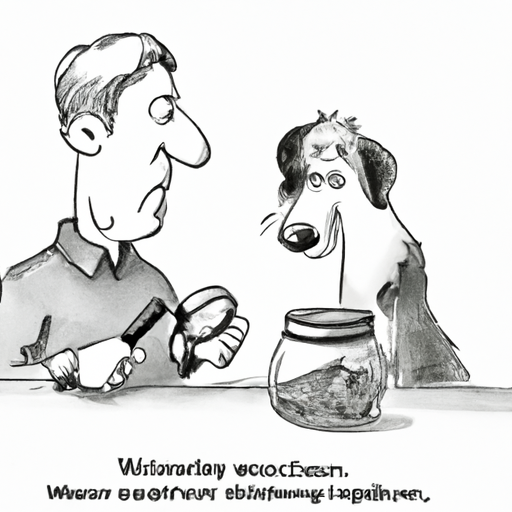As a dog owner, understanding the various types of worms that your furry friend can contract is vital to their health and well-being. This knowledge will help you recognize the symptoms early and seek timely medical attention.
Table of Contents
Roundworms
Roundworms are the most common type of parasites in dogs. They are long and slender, resembling spaghetti strands, and can grow up to seven inches long. Puppies are more prone to roundworm infection as they can contract them from their mother’s milk.
Symptoms of roundworms include:
- Weight loss
- Diarrhea
- Vomiting
- An enlarged belly
Hookworms
Unlike roundworms, hookworms are tiny and thin. They cling to the intestinal wall and feed on your dog’s blood, leading to anemia if left untreated.
Symptoms of hookworms include:
- Diarrhea
- Weight loss
- Anemia (signs include weakness, pale gums)
Whipworms
Whipworms are not as common as roundworms or hookworms, but they can still pose a threat to your dog’s health. They are named after their whip-like shape, with a thick anterior end and a long, thin posterior end.
Symptoms of whipworms include:
- Weight loss
- Diarrhea
- Blood in stool
Tapeworms
Tapeworms are flat and segmented, and they attach themselves to your dog’s intestines. Dogs can get tapeworms by ingesting fleas or by eating wildlife that is infected with tapeworm larvae.
Symptoms of tapeworms include:
- Weight loss
- Diarrhea
- Visible segments of the worm in your dog’s feces
Heartworms
Heartworms are the most dangerous worms for dogs as they live in the heart, lungs, and blood vessels. They are transmitted through mosquito bites, and can cause severe lung disease, heart failure, and damage to other organs in the body.
Symptoms of heartworms include:
- Coughing
- Fatigue
- Weight loss
- Difficulty breathing
FAQs
Q: How can I prevent my dog from getting worms?
A: Regular deworming, maintaining a clean environment, and using flea prevention products can help prevent worm infestations.
Q: Can humans get worms from dogs?
A: Some worms, like roundworms and hookworms, can be transmitted from dogs to humans. Always practice good hygiene, especially after cleaning up after your dog.
Q: How are worms in dogs treated?
A: Your vet will prescribe a deworming medication that kills the worms. In severe cases, hospitalization and additional treatments may be required.
Q: Can I see worms in my dog’s stool?
A: Not always. While some worms or worm segments might be visible, many remain invisible to the naked eye. Regular vet check-ups are crucial to detect and treat worm infestations early.
Remember, the key to preventing worms in dogs is regular vet check-ups, deworming, and maintaining a clean environment. If you notice any signs of worms, schedule a vet appointment immediately to begin treatment.



